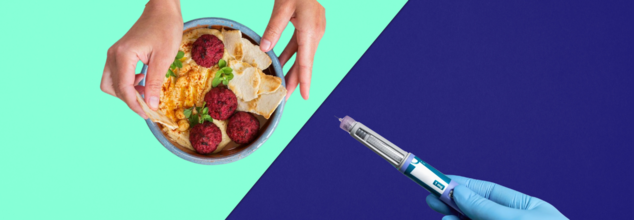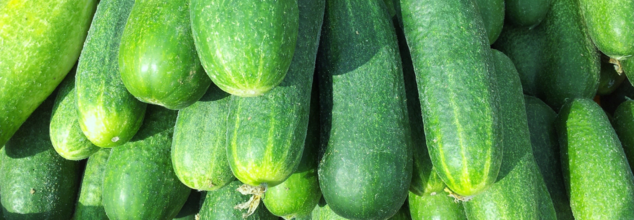- Health Conditions A-Z
- Health & Wellness
- Nutrition
- Fitness
- Health News
- Ayurveda
- Videos
- Medicine A-Z
- Parenting
- Web Stories
Weight Loss Jabs Are 'No Quick-Fix', GP Recommends Eating This Diet Instead

If you’ve been keeping an eye on the latest buzz in the world of weight management, you’ve likely heard about weight loss jabs making waves across the health and wellness field. Promising rapid results and appetite control, medications like semaglutide and tirzepatide are being hailed as breakthrough options for those struggling with stubborn pounds. But are these injections truly the magic solution they seem to be? Or is there more to it than you think?
Before you place all your hopes on a mere shot, it's crucial to know how these drugs work, the changes in lifestyle they still require, and the risks they might pose.
The popularity explosion of weight loss drugs such as semaglutide (Ozempic, Wegovy) and tirzepatide (Mounjaro) has made them a huge international health trend. However, although these shots hold out hope, experts warn against treating them as an obesity "silver bullet" — or a fix for other mass societal problems like joblessness. Rather, physicians stress the absolute necessity of making drastic but sustainable lifestyle overhauls, especially a balanced diet, in order to bring about and sustain long-term health effects.
After health secretary Wes Streeting last week announced a real-world trial assessing the effect of weight-loss jabs on worklessness, there has been increasingly heated public discussion. While the need to address obesity is imperative, specialists point out that to rely on pills alone may raise significant logistical as well as ethical issues.
Today, Wegovy can be accessed on the NHS for the management of obesity, with Mounjaro still awaiting wider approval. Although their increasing availability, these drugs continue to pose major concerns regarding global shortages and their potential misuse.
GP registrar and author Dr. Jack Mosley, and son of late health broadcaster Dr. Michael Mosley, points out that such drugs were only intended for someone with a Body Mass Index (BMI) higher than 30, or female with a BMI higher than 27 and weight-related condition. "These weren't intended for aesthetic weight reduction," Mosley emphasizes. "They are heavy-duty treatments under strict supervision."
In addition, the lucrative market for online pharmacies has opened a "wild west" situation in which high-dose prescriptions with profit-driven rationales increase the risk of dangerous side effects and health issues.
Why Weight Loss Jabs Are No Magic Formula?
While drugs such as semaglutide and tirzepatide dampen hunger and cravings, specialists caution that most patients wrongly assume a single injection will cure lifelong weight problems. "They dramatically cut your appetite," Mosley says, "but without concurrent lifestyle changes, their effects are unlikely to be maximized."
Possible side effects such as nausea, vomiting, constipation, and diarrhea are normal and may worsen if patients do not change their unhealthy eating behaviors. "If you continue to eat processed foods with low nutrients, the body responds negatively, and drug compliance is poor," Mosley states.
Even more alarming is the threat of malnutrition. Even though they are overweight, most individuals with obesity are deficient in micronutrients. "We are overfed and undernourished," Mosley observes. Without correcting the quality of food consumption, patients risk exacerbating their health issues even as they lose weight.
One of the sneaky side effects of fast weight loss with medication is muscle loss. Research indicates that a full 40% of weight lost can be from lean body mass. "Muscle isn't about strength," Mosley says. "It's important for metabolic health, controlling blood sugar, and staying independent as we age."
Therefore, protecting muscle via resistance training is essential. Even minimal home exercises with body weight or resistance bands can have an impact. "It's not about the number on the scale," Mosley stresses. "It's about preserving the body's functional health in the long term."
What Diet Is Most Effective With Weight Loss Medication?
The evidence consistently points toward a Mediterranean-style diet as the gold standard for patients using weight loss drugs. Rich in olive oil, nuts, seeds, oily fish, fruits, vegetables, legumes like chickpeas and lentils, this approach prioritizes nutrient density, healthy fats, fiber, and sufficient protein.
"Processed junk food should be avoided as much as possible," Mosley advises. "Even if weight loss occurs on a poor diet, the long-term effects on muscle, micronutrients, and overall wellbeing are dangerous."
In addition to body hunger, emotional and stress-eating habits frequently called "food noise" need to be managed. "Weight reduction drugs suppress hunger, but they do not prevent emotional cravings," states Mosley. "To mute these inside drivers, control stress with physical activity, mind-focusing strategies, yoga, and a nutritious diet."
How to Prevent Weight Regain After Coming Off Weight Loss Injections?
One of the most significant challenges patients on weight loss medication have is keeping weight off after they stop the injections. Research indicates that patients can regain as much as two-thirds of the weight lost in the first year after going off medication.
Mosley makes a strong comparison, "These drugs are like noise-canceling headphones they lower the 'food noise.' But when you take the headphones off, the cravings come roaring back."
That's why developing sustainable habits — such as consuming a Mediterranean diet, adding regular strength training, and managing the food environment while taking medication is important. "Counting on willpower alone is dangerous," Mosley says. "We need to design environments and habits that make healthy choices easy."
Although the next generation of obesity jabs is a major step forward in obesity therapy, they are not one-off fixes. Experts such as Dr. Jack Mosley caution people to view these drugs as tools and not cures that work best when complemented with responsible eating, daily exercise, emotional health strategies, and nutrient-rich diets.
4 High Quality Carbs That Can Help You Live Longer: Study

(Credit-Canva)
Carbs have been villainized by the modern media and many people believe that cutting out carbs from their diet is the only way to live healthy. However, carbs are healthy parts of our diet, our bodies, in fact, need them in order to survive. Even if you are trying to lose weight, have conditions like diabetes, carbs can be a healthy part of your diet too.
A recent study published in the journal JAMA Network Open, suggests that women who consume more fiber and high-quality carbohydrates in midlife may experience healthier aging and reduce their risk of developing 11 chronic diseases. Researchers analyzed data from over 47,000 participants in the U.S. Nurses' Health Study, spanning from 1984 to 2016.
Eating What High-Quality Carbs Affect Long-Term Health?
The study revealed that women who consumed more high-quality carbohydrates—found in fruits, vegetables, whole grains, and legumes—were up to 37% more likely to experience healthy aging. Conversely, diets rich in refined carbohydrates (from added sugars, refined grains, and starchy vegetables like potatoes) were associated with a 13% lower likelihood of healthy aging.
For the purpose of the study, healthy aging was defined as living to age 70 without developing 11 specific chronic diseases or experiencing memory impairment, while also maintaining good mental health. The chronic diseases considered included most cancers, type 2 diabetes, heart failure, stroke, kidney failure, and Parkinson's disease.
How Do Refined Carbs Affects Our Health
In contrast, a diet heavier in refined carbohydrates (including added sugars, refined grains, and starchy vegetables) was linked to a 13% lower chance of healthy aging. The chronic diseases considered in the study included various cancers, type 2 diabetes, heart failure, stroke, kidney failure, and Parkinson's disease.
What Are Good Carbohydrate?
Good carbohydrates include foods rich in fiber, like whole fruits and vegetables, and whole grains. These types of carbohydrates break down slowly in the body, providing sustained energy. In contrast, low-quality carbohydrates are found in refined grains and added sugars, which lack fiber and are quickly processed by the body.
The Centers of Disease Control and Prevention explains that while simple carbs and refined carbs can increase one’s blood sugar, (as they lack fiber) complex carbs increase your blood sugar more slowly because they have fiber and other complex starches that take longer for your body to digest foods. Some examples of foods with complex carbs is sweet potatoes, peas, corn, beans, lentils and whole grains.
If you are concerned about over-doing your carb intake, then try carb counting, the key is to choose carbs and fiber-rich nutrients and portion your serving size.
The best way to ensure you are eating enough food and full-filling your nutrient intake for the day is by adding protein to your foods like meat, or a handful of nuts, low-fat dairy. They ensure you don’t get hungry too early and help you avoid blood sugar spikes.
The study's results support what other research has already shown. Eating plenty of fruits, vegetables, whole grains, and beans is linked to a lower risk of many chronic illnesses. Now, this new study further connects these healthy eating patterns to better physical and mental well-being as people age.
Salmonella Outbreak Linked To Florida-Grown Cucumbers, Warns CDC

Credits: Canva
The United States has been battling many health crises since the beginning of this year. To this never-ending crisis, yet another salmonella outbreak is added, and it has been linked to cucumbers which were grown in Florida.
As per the US Food and Drug Administration (FDA)'s statement on May 19, as reported in Associated Press, at least 26 people across 15 states have gotten sick, and nine were hospitalized.
What Exactly Happened?
The cucumbers were grown by Bedner Growers and were distributed by Fresh Start Produce Sales and were sent to various restaurants, grocery stores, and food service companies between April 25 to May 19. As per the AP report, they would be well within its shelf life.
However, as the US Centers for Disease Control and Prevention (CDC) noted, the first illnesses were actually reported between April 2 to April 28. Some of these people were the ones who had eaten cucumbers while on cruise ships out of Florida.
The outbreak was then discovered after a follow-up inspection. A previous outbreak that had happened, sickened as many as 551 people and led to 155 hospitalization in 2024. The previous outbreak was linked to untreated canal water which was used by the same company, Bedner Growers and another Florida farm, Thomas Produce Company.
In the recent case, salmonella which was found on the farm matched the bacteria in the people who had fallen sick, confirmed the FDA. Organic cucumbers, however, are not affected.
Stores should notify customers who may have purchased the cucumbers, and consumers are advised to discard them if they’re unsure of the source.
Salmonella infection can lead to symptoms like diarrhea, stomach cramps, fever, and vomiting. While most people recover within a few days, the illness can be more severe for young children, older adults, and those with weakened immune systems.
What Is Salmonella?
As per the FDA, Salmonella are a group of bacteria that can cause gastrointestinal illness and fever called salmonellosis. It can be spread by food handlers who do not wash their hands and/or the surfaces and tools they use between food preparation steps. It can also happen when people consume uncooked and raw food. Salmonella can also spread from animal to people.
FDA notes that people who have direct contact with certain animals, including poultry and reptiles can spread the bacteria from the animal to food if hand washing hygiene is not practiced.
Pets too could spread the bacteria within the home environment if they eat food contaminated with Salmonella.
What Are The Symptoms Like?
FDA notes that most people infected with Salmonella will begin to develop symptoms 12 to 72 hours of the infection, which lasts for about four to seven days. Most people recover without treatment.
Most people experience these following symptoms:
- Diarrhea
- Fever
- Abdominal Cramps
In severe cases of salmonella, you may experience:
- High fever
- Aches
- Headaches
- Lethargy
- A rash
- Blood in urine and stool
As per the CDC, each year, around 450 people diet in the United States due to acute salmonellosis.
Who Are At More Risk?
Children who are younger than five and the elderly, and people with weakened immune system could be more at risk to have severe salmonellosis infections.
This Surprising Pre-Drink Fix Can Prevent Hangovers And It's Doctor Approved

Credits: Canva
Ever wake up after a fun night out regretting that extra glass of wine? We've all been there—pounding headache, queasy stomach, zero energy. According to doctors, the secret might already be in your fridge. That’s right—cheese could be your new go-to pre-drink fix. Here's how this delicious bite can save your morning after. For most of us, the price of a night out is a throbbing headaches, exhaustion and nausea. Hangover remedies, of course, are a dime a dozen, but few of them carry the seal of approval from a medical expert. But what if one of the most effective ways to avoid a hangover was waiting in your fridge all this time?
Dr. Neena Chandrasekaran, a South Florida-based pulmonary critical care physician, recently tok to TikTok to share a surprisingly easy—and delicious—advice on how to prevent hangovers before they start. Her tip? Cheese.
It's not simply about excess—cheese might even be of biological use, incidentally, if eaten prior to consuming alcohol. "If you're going out for the evening and you're going to consume alcohol, having cheese beforehand can reduce your chances of getting a hangover," Dr. Chandrasekaran reported recently in a popular TikTok video that has gone viral. As she concludes, the essential caveat that "no alcohol is better than any alcohol," her counsel is scientifically based.
Cheese has a good balance of macronutrients—protein, fat, and complex carbohydrates. These aid in lining the stomach and slowing down the rate at which alcohol is absorbed into the bloodstream. The slower alcohol gets into your system, the smaller the likelihood that your blood alcohol content (BAC) will shoot up quickly, which is one of the main causes of hangover symptoms.
When alcohol enters the system at too great a volume, it overloads the liver, dries out the body, and creates inflammation—all contributors to the hangover process. Cheese buffers that effect to some extent, both decreasing the shock to the system and the misery the morning after.
Why Is Cheese as a Functional Food?
One of the not-so-well-known effects of drinking alcohol is its stripping of essential nutrients such as calcium and B vitamins. Calcium is important for nerve and muscle function, while B vitamins are necessary in energy production and alcohol metabolism.
Dr. Chandrasekaran points out that cheese is high in these two nutrients. By storing them up ahead of time, your body is more capable of coping with alcohol's impact. B vitamins, specifically, help liver enzymes metabolize alcohol—giving a metabolic boost before your first drink.
Link Between Probiotic Cheese and Liver Health
Aside from the traditional brie or cheddar, recent studies also point to the promise of probiotic cheese in counteracting the brash effects of alcohol. A South Korean study tested the effect of cheese enriched with Lactococcus lactis LB1022 and Lactiplantibacillus plantarum LB1418 on alcohol metabolism.
This probiotic cheese was found to activate the activity of two essential enzymes—alcohol dehydrogenase (ADH) and aldehyde dehydrogenase (ALDH). These enzymes are integral to metabolizing ethanol and its harmful byproducts. The research also found that this cheese is beneficial in activating pathways in the liver that minimize fat deposition and inflammation—two signatures of chronic alcohol-induced liver injury.
So not only can cheese assist you in waking up without a throbbing headache, but possibly it may safeguard your liver in the long term as well.
Other Ways To Prevent A Bad Hangover
Although cheese can act as a first line of defense, prevention of hangovers works best when done in a holistic manner. Everyone agrees that hydration is key. Alcohol functions as a diuretic, which raises urine production and results in dehydration. Consumption of water between alcoholic drinks can work against this.
Also, including some foods while or after drinking could assist the body in recovering more effectively. Bananas are filled with potassium and restore electrolytes. Watermelon and oranges restore fluids and vitamin C. Eggs supply cysteine, an amino acid that helps to break down acetaldehyde, a poisonous byproduct of alcohol. Ginger alleviates nausea and calms an upset stomach.
The lesson here isn't to drink with reckless abandon but how to take care of your body when and if you do. Cheese, usually just a snack or staple of charcuterie boards, is turning out to be an unlikely protector in the battle against hangovers—providing preventive as well as protective measures when eaten responsibly.
Sure enough, no pre-drinking routine, no matter how healthy, overrides the dangers of overdrinking. Moderation is still the watchword, and people with certain medical conditions or on certain medications should talk to their medical professionals before having a drink.
The next time you’re headed to a happy hour or celebration, consider reaching for a slice of aged gouda or a chunk of Parmesan beforehand. It could be the simple, doctor-approved step that makes your morning-after significantly more bearable.
© 2024 Bennett, Coleman & Company Limited



